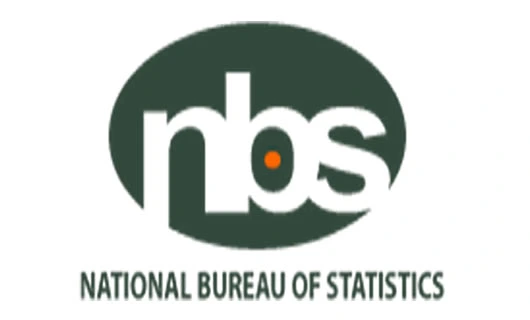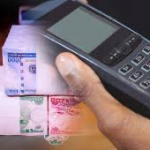
NBS Data Reveals Nigerians Paid ₦2.23tn in Ransom Between May 2023 and April 2024, Despite ₦3.85tn Security Budget

The National Bureau of Statistics (NBS) has revealed that Nigerians paid ₦2.23 trillion as ransom to kidnappers between May 2023 and April 2024, showing the alarming rise of criminal activities across the country despite significant government spending on security.
The report, contained in the NBS’s Crime Experience and Security Perception Survey, noted that over the period under review, an estimated 51.89 million crime incidents were recorded in Nigerian households.
The survey revealed significant regional variations in crime incidence with North-West recording the highest crime rate with 14.4 million cases. North-Central followed with 8.8 million cases and South-East reported the least crime with 6.18 million cases.
The report further showed that rural areas were more vulnerable to crime, with 26.53 million incidents reported in rural households compared to 25.36 million incidents in urban areas.
The report stated that kidnapping emerged as one of the most severe security challenges during the period. 4.14 million households were victims of home robbery. Of those affected by kidnappings, 65 per cent paid ransoms to secure the release of loved ones.
The average ransom payment was ₦2.67 million, totalling ₦2.23 trillion paid by Nigerians to kidnappers.
This worrying statistics comes despite the Nigerian government allocating ₦3.85 trillion (13.38 per cent of the national budget) to the security and defense sector for the 2024 fiscal year. The budget included funding for military operations, police reforms, and intelligence infrastructure to curb rising insecurity.
However, the data suggests that the country continues to grapple with widespread criminality, raising questions about the efficiency and impact of these investments.
Read Also: NBS Data Shows Inflation Climbs to 34.60% as Food Prices Rise in November
NAFDAC Shuts Down 150 Shops in Aba’s Eziukwu Market Over Tons of Fake and Expired Products
The report highlighted a significant portion of crime incidents went unreported. Only 36.3 per cent of households affected by home robberies were reported to the police. Victims of kidnapping and sexual offenses similarly demonstrated low confidence in law enforcement.
Many respondents cited a lack of confidence in police intervention as a primary reason for not reporting. They expressed scepticism that police action would yield meaningful results.
Phone theft was the most common crime at the individual level, affecting 13.8 per cent of the population. Although 90 per cent of phone theft victims reported incidents, only half were satisfied with the police response.
Sexual offenses affected an estimated 1.4 million Nigerians, yet only 22.7 per cent of victims reported these crimes.
The survey found that 9.6 per cent of Nigerians believed they were at risk of becoming crime victims in the next 12 months. The fear of crime was particularly pronounced in rural areas, where 13 per cent of residents felt vulnerable compared to 7% in urban centres.
The report further questioned the responsiveness of security agencies. Only 33.1 per cent of respondents said security forces responded to emergency calls within 30 minutes. Satisfaction with police responses was notably low in cases of Livestock theft (42.9 per cent satisfaction), crop theft (42.4 per cent satisfaction).
In rural areas, local vigilante groups were perceived as a more reliable source of security compared to formal law enforcement.
The NBS data paints a concerning picture of rising insecurity, escalating kidnapping incidents and dwindling public trust in security agencies.
Despite the substantial security budget, the payment of ₦2.23 trillion in ransom shows the urgent need for improved accountability, efficiency and transparency in the use of security funds to address Nigeria’s growing security challenges.
About The Author
Related Articles
What Do Countries Targeted by the United States Have in Common?
Look at the list. Iran, Palestine, Venezuela, Syria, Iraq, Nigeria, Somalia, Yemen....
ByWest Africa WeeklyMarch 4, 2026Three Doctors Suspended as Medical Council Probes Death of Chimamanda Adichie’s Son
Nigeria’s medical regulatory authority has taken the rare and serious step of...
ByWest Africa WeeklyMarch 4, 2026Night Gunfire Near Presidential Palace Sparks Tension in Ouagadougou
Gunshots were heard late on the night of February 28 into March...
ByWest Africa WeeklyMarch 3, 2026Uganda to Start Domestic Gold Purchasing Programme to Boost Reserves
Uganda’s central bank has announced plans to launch a domestic gold buying...
ByWest Africa WeeklyMarch 3, 2026












Leave a comment